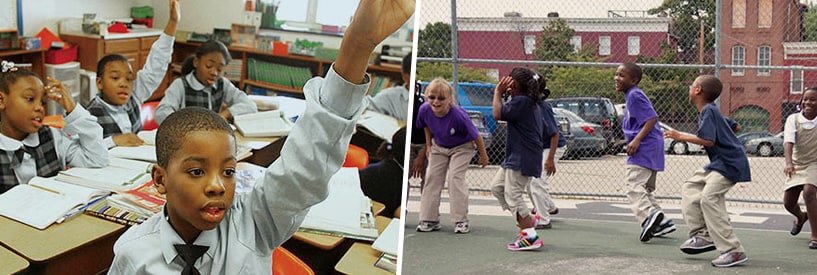Equity in Education

Community Schools Virtual Panel Discussion
Learning from (and Planning for) Research on Community Schools.
Practitioners, researchers and community stakeholders are invited to join a panel discussion about Community Schools in Baltimore. Co-hosted by the Center for Evaluation and Research and the Baltimore Education Research Consortium, our panel will feature [local scholars: Claudia Galindo, Mavis Sanders, Jessica Shiller..] and experienced field leaders [principal, coordinator, parent leader] who are deeply engaged in the work of community schools. As Maryland now disburses millions of dollars to initiate the community school strategy in hundreds of historically underserved public schools across the state, our panel will address:
- What does it mean to become a community school?
- What is the current research about the effectiveness of community school strategy as an approach to promote educational equity?
- How do leaders of Baltimore’s Community Schools approach their work?
- How might new research address challenges confronted by community school leaders?
Event Details
Tuesday, Nov. 8, 2022
Virtual
12:30 - 2 p.m.